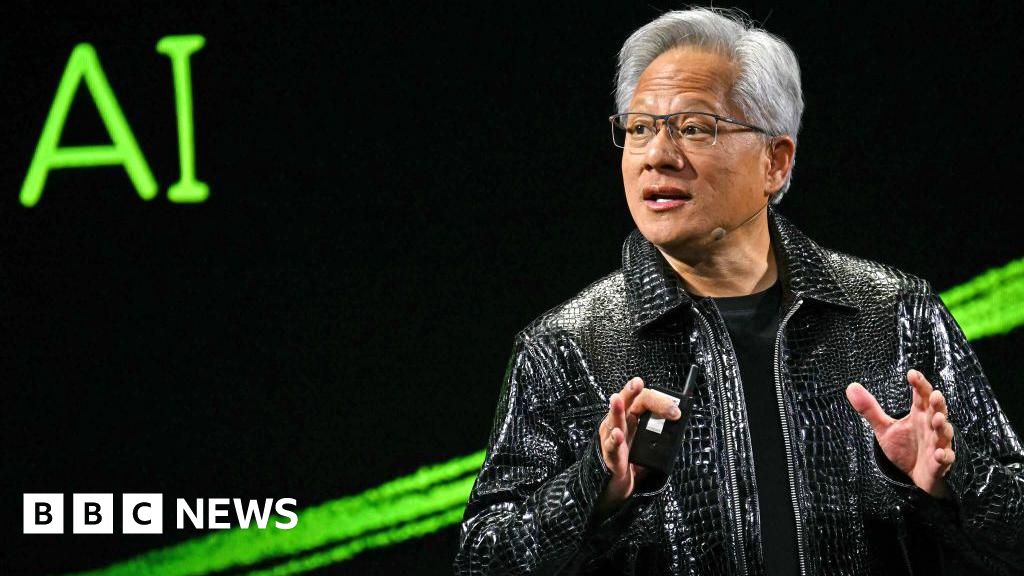AI boom boosts Nvidia despite geopolitical issues
- BBC News
Computer-chip designer Nvidia has been boosted by big tech firms keen to expand their AI capabilities, despite dealing with US and China tensions.
On Wednesday it reported $46.7bn revenue (£34.6bn) for the second three months of the year, a 56% surge from the same period in 2024.
But Nvidia, which has been caught in the crossfire of a trade war between the US and China, said it "continued to work through geopolitical issues" and its shares fell in after-hours trading.
The company has had to navigate the Trump administrations fast-changing policies aimed at ensuring the US remains ahead in AI development.
Nvidias sophisticated chips have been an important part of the AI boom.
On Wednesday it said demand for its products remains strong, especially from big tech firms including Instagram-owner Meta, and ChatGPT-maker OpenAI, as they race to build-out AI.
"The AI race is now on," said Nvidia boss Jensen Huang in a call with analysts following the reports release, saying spending from four big tech firms had doubled to $600bn per year.
"Over time, you would think that artificial intelligence would... accelerate GDP growth," Huang said. "Our contribution to that is a large part of the AI infrastructure."
The companys revenue from data centres surged by 56% to $41.1bn, even as it fell slightly short of analysts expectations.
In July, Nvidia became the worlds first $4trn company.
The Santa Clara, California-based designer of artificial intelligence (AI) chips said revenue in the current quarter would probably grow to $54bn, topping the expectations of Wall Street analysts.
But Nvidia remains exposed to geopolitical tensions between the US and China.
The company announced in July that it would resume sales of its high-end artificial intelligence chips to China.
The move came after Huang successfully lobbied the Trump administration to reverse its ban on the sale of the companys H20 chips, developed specifically for the Chinese market.
The administration had imposed the ban amid worries that the chips might benefit the Chinese military, in addition to AI developers based in the country.
On Wednesday, executives said that in late July, the US government had started reviewing licenses for sales of H20 chips designed specifically for Chinese customers.
But the company added that it had not shipped any H20s, despite some China-based customers receiving those licenses in recent weeks.
The US government is expecting to get 15% of the revenue generated from licensed H20 sales.
Nvidia did not include H20 in its outlook for the current quarter and said it was also lobbying the US government to approve the sale of its Blackwell ships to China, the largest market for chips.
In the meantime, analysts say, China is cultivating competition in the sector that Nvidia currently dominates.
"US export restrictions are fuelling domestic chipmaking in China," said Emarketer analyst Jacob Bourne after the reports release.
He said the question now is whether Nvidias "dive into robotics" will help it sustain its role as "the bellwether of the AI economy".
Sign up for our Tech Decoded newsletter to follow the worlds top tech stories and trends. Outside the UK? Sign up here.